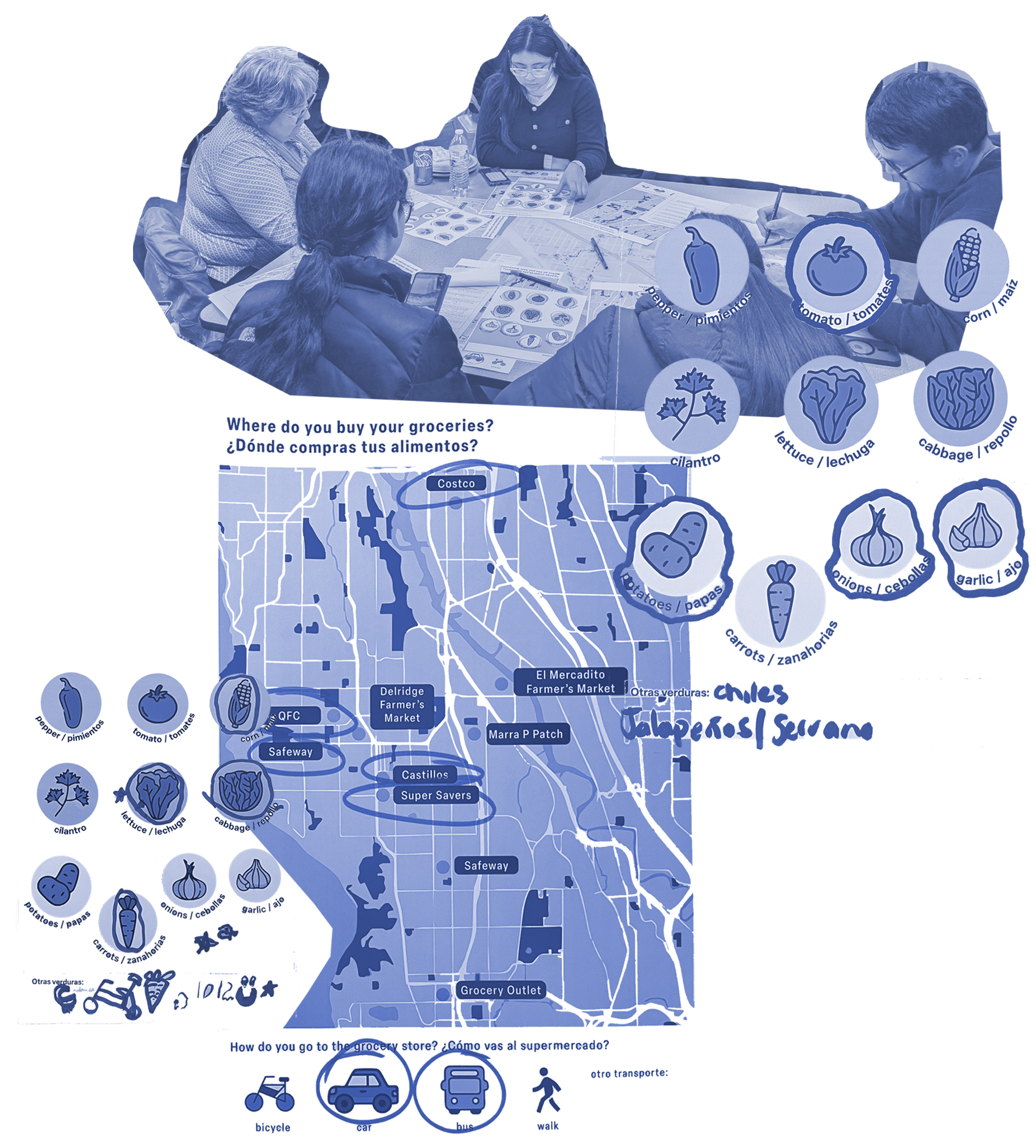Biodigester Community
Workshops
WHEN
WHEN
November 14, 2024
February 13, 2025
May 20, 2025
June 12, 2025
February 13, 2025
May 20, 2025
June 12, 2025
WHERE
Duwamish River Community Hub
8600 14th Ave S, Seattle, WA 98108
&
Food Lifeline
815 S 96th St, Boulevard Park, WA 98108
Biodigester Community Workshop #1
![]()
Biodigester Community Workshop #2
![]()
Biodigester Community Workshop #3
![]()
Biodigester Community Workshop #4
![]()
8600 14th Ave S, Seattle, WA 98108
&
Food Lifeline
815 S 96th St, Boulevard Park, WA 98108
︎︎︎Community Conversation Series
︎︎︎Georgetown Steam Plant Science Fair
Biodigester Community Workshop #1

Biodigester Community Workshop #2

Biodigester Community Workshop #3

Biodigester Community Workshop #4


Supporting Community Self-Determination
and Co-Creation in South Park
DVSA and JC3 team members co-hosted and facilitated a series of four “Biodigester
Community Workshops” at the Duwamish River Community Hub and Food Lifeline from
November 2024 - June 2025. These workshops were supported by both the EarthLab Innovation
Grant and grants DVSA acquired, including the Community Wealth Building Grant. As a
progressive series of workshops, each session was designed to build trust, reflect community
priorities, and co-generate actionable concepts of circular, regenerative, and solidarity
economies that centered community voices and priorities. The cumulative workshops applied a
feedback-informed approach that allowed conversations to evolve and build based on what
was discussed, shared, and learned from previous workshops.
Each session began with a foundational overview of key economic models in relationship to waste,
including linear, circular, and regenerative economies. The larger purpose was to explore how circular
economy principles could be applied locally through the implementation of a community-scale
biodigester. To support participants’ understanding of the biodigester technology, each session
offered an overview of how the technology works and how it can support a local circular economy.
The team presented case studies and an overview of the DVSA-operated small-scale biodigester at
Food Lifeline as a tangible example of how waste-to resource systems could benefit the community.
This foundation served to bridge global concepts with local relevance, asking community members
to consider how scaling such a system could integrate into both municipal services and
community-driven initiatives. Throughout the workshop series, the project team used interactive
exercises, group discussions, live polling, and visual tools to ensure feedback was accessible and
inclusive. Community input was not only collected but visibly integrated into each subsequent session.
This reinforced a cycle of mutual learning and accountability, thus allowing the project to remain grounded
in community realities and aspirations, and ensuring that any future development of biodigester
infrastructure reflects the priorities of those it is intended to serve. Workshop 1 focused on understanding
community priorities for how the biogas ought to be used for and by the community. Drawing from expressed
preferences, which was the development of a local transportation network,Workshop 2 entailed the
co-production of potential shuttle routes. Learning from nearly a dozen different maps community members
produced in teams, the JC3 team developed 3 options. These options were presented to the community during
Workshop 3, and community members overwhelmingly preferred one of the options. This feedback led to the
development of a concept plan that proposes a local shuttle and micromobility network fueled by electricity
generated by the biogas from the proposed biodigester, which was presented to the community during the
fourth and final workshop.
Click on any of the workshop icons to the left for more details about each workshop–what methods were
used, co-created ideas emerged, and how community voices were centered throughout this engagement process.
Partners and Participants
Duwamish Valley Sustainability Association, South Park Community Members,
JC3 Team Members: Catherine De Almeida, Sarah Chu, Sarah Maness
